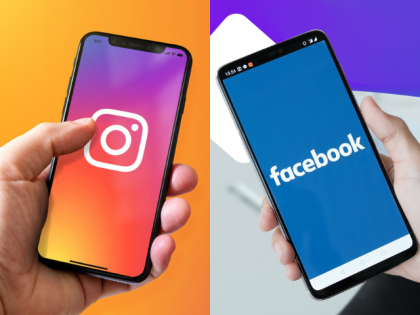Instagram and Facebook's New Feature Expands Content Reach with AI-driven Dubbing Tool
By Lokmat Times Desk | Updated: August 22, 2025 14:07 IST2025-08-22T14:06:36+5:302025-08-22T14:07:56+5:30
Meta has introduced a new artificial intelligence-powered voice translation tool for Facebook and Instagram Reels, now accessible worldwide. The ...

Instagram and Facebook's New Feature Expands Content Reach with AI-driven Dubbing Tool
Meta has introduced a new artificial intelligence-powered voice translation tool for Facebook and Instagram Reels, now accessible worldwide. The feature allows creators to share content in multiple languages without the need to record personal voice versions, making their reach more inclusive. Known as Meta AI Translation, the tool is free to use and currently supports translation between English and Spanish, with more languages expected soon. The tool not only translates but also auto-dubs and lip-syncs Reels, enabling creators to engage with diverse global audiences more effectively and expand their visibility across regions.
To activate the tool, creators need to click on the option “Translate your voice with Meta AI.” Once enabled, they can toggle settings for translation and lip-sync before publishing their content. Meta also provides an option to review translations prior to sharing. Notifications alert creators once translations are ready, and final adjustments can be made via the Professional Dashboard. For Facebook Pages, Meta allows creators to upload up to 20 dubbed audio tracks per Reel, significantly boosting accessibility. This rollout reflects Meta’s broader aim to simplify communication and strengthen connections between creators and audiences globally.
Also Read: ISKCON Girgaum Temple Receives Third Threat Email, Security on High Alert
While the feature enhances user experience, researchers are voicing concerns over the growing influence of short-form video content. Platforms like Instagram, TikTok, and YouTube Shorts have been found to stimulate the brain’s reward pathways in a manner similar to addictive substances such as alcohol. A recent study led by Professor Qiang Wang from Tianjin Normal University, published in NeuroImage, revealed that frequent short-video viewers showed heightened activity in brain regions associated with addiction, raising questions about potential risks tied to prolonged engagement.
The findings suggest that excessive consumption of short videos can impact focus, memory, and motivation while also increasing risks of depression and sleep disorders. In China, for example, users spend an average of 151 minutes daily on short-form videos, with about 96 percent of internet users engaged with such content. Experts have cautioned that the long-term effects on mental health could be severe. Consequently, researchers have described this growing trend as a potential public health challenge, urging caution alongside innovation in digital platforms like Meta’s new translation tool.
Open in app